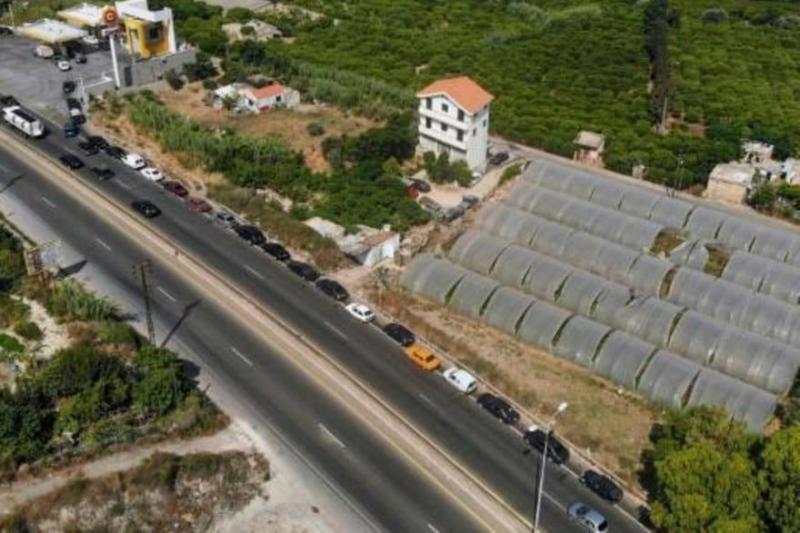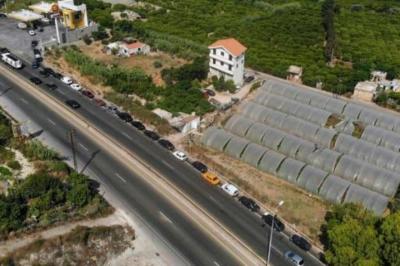On Tuesday, Lebanon raised fuel prices by more than thirty percent, in a move aimed at partially lifting subsidies on fuel as the dollar reserves at the Central Bank of Lebanon dwindle, while the country sinks deeper into a continuous economic collapse. Lebanese citizens have been waiting for weeks in long queues in front of gas stations, which have adopted a strict rationing policy for distributing gasoline and diesel, while the ability of Electricité du Liban to supply electricity has gradually decreased, leading to daily power cuts lasting up to 22 hours.
According to the new price list published by the National News Agency of Lebanon, the price of a 20-liter canister of 95 octane gasoline exceeded 60,000 Lebanese pounds (40.6 dollars at the official exchange rate) after an increase of about 16,000 pounds. The price of a 98 octane gasoline canister has reached approximately 63,000 pounds (42 dollars) after an increase of 16,300 pounds. The price of a diesel canister has exceeded 46,000 pounds (30.7 dollars) following an increase of 12,800 pounds.
Amid the ongoing economic collapse, which the World Bank classified this month among the three most severe economic crises in the world since the mid-20th century, the Central Bank of Lebanon used to support fuel imports through a mechanism that provided 85 percent of the total import cost at the fixed official exchange rate of 1,507 pounds, while importers covered the remaining amount at the black market exchange rate, which has exceeded 17,000 pounds in recent days.
As the central bank's reserves diminish, the authorities have been exploring ways to rationalize or lift subsidies on essential goods such as flour, fuel, and medicines for several months, gradually starting to lift subsidies on various items without an official announcement. Last week, caretaker Prime Minister Hassan Diab granted exceptional approval to fund fuel imports at a rate of 3,900 pounds per dollar instead of 1,500 pounds, prompting the central bank to announce on Monday that it would open lines of credit for fuel imports at the new price.
The National News Agency reported Tuesday morning that six ships offshore began unloading their fuel cargoes at night, and tankers are set to distribute gasoline and diesel to gas stations, which have witnessed unprecedented congestion that sometimes developed into disputes and gunfire. Officials linked the current crisis to two main factors: traders' initiatives to hoard fuel and the boom in smuggling to neighboring Syria. Security forces periodically announce the arrest of those involved in smuggling operations and raid warehouses storing large quantities of subsidized diesel and gasoline.
With authorities unable to find rescue solutions to put an end to the ongoing crisis, the ramifications of the collapse are increasingly evident in the daily lives of Lebanese citizens, more than half of whom now live below the poverty line and are suffering from a drastic decrease in their purchasing power.




